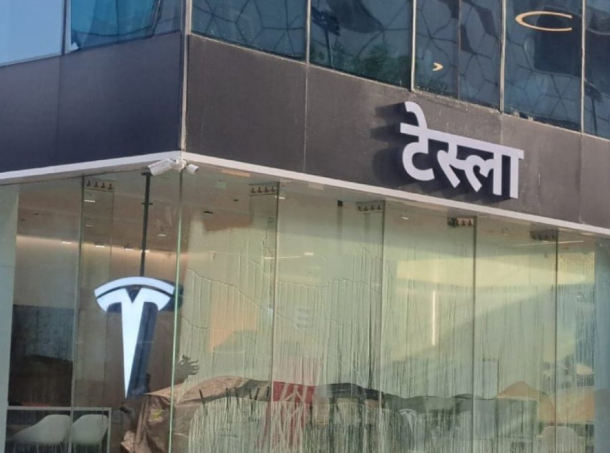
After a long wait, the day has finally arrived when Tesla — the electric vehicle giant led by the world’s richest man, Elon Musk — has officially entered the Indian market. Tesla inaugurated its first showroom in Mumbai’s Bandra Kurla Complex (BKC), marking a historic moment for the Indian automobile landscape. The event was graced by Maharashtra’s Chief Minister Devendra Fadnavis, who personally inaugurated the 4,000 square foot showroom.
However, amid all the excitement and celebration, one question is echoing across the minds of Indian consumers — why are Tesla cars so expensive in India? Can the average Indian customer ever afford a Tesla? Is this entry a mere show-off or does Elon Musk have a larger vision for India?
Tesla’s journey into India has been a long and delayed one. Musk first expressed interest in entering the Indian market back in 2015. But the path was riddled with challenges — import duty policies, lack of infrastructure, and unclear government regulations kept Tesla away for years. Now, in 2025, Tesla has finally made its first move.
The BKC showroom currently offers only one model for sale — the Tesla Model Y. However, these vehicles are not made in India but fully built and imported from China. The base price of the Model Y in India starts at ₹59,79,000. In contrast, the same car is priced at $44,990 in the United States — roughly ₹38.7 lakh. That’s a direct difference of over ₹21 lakh. On-road prices in Mumbai can go up to ₹70 lakh or more.
Why such a big price jump?
The key reason lies in India's import duty structure. Vehicles imported as Completely Built Units (CBUs) are subject to import duties ranging between 60% and 100% depending on engine size and cost. This alone inflates the price drastically. Additional costs like GST, registration fees, road tax, and insurance make Tesla cars even more expensive.
To put it in perspective, the same Model Y costs around ₹46 lakh in China and Europe. India, therefore, becomes the most expensive market for Tesla.
The Tesla Model 3, often regarded as the entry-level Tesla globally, retails at an even lower price in the U.S. However, if launched in India under the current policy framework, its price could approach ₹40 lakh or more — well out of the affordable range for the average Indian consumer.
So the question arises — why would someone in India buy a Tesla when local manufacturers like Tata, Mahindra, and MG offer electric vehicles at much lower prices? For instance, the Tata Nexon EV ranges between ₹15 lakh to ₹18 lakh. The MG ZS EV is priced between ₹20 lakh to ₹25 lakh, and even Hyundai's Kona EV costs ₹24 lakh to ₹27 lakh.
Clearly, Tesla's pricing is significantly higher. But it’s not just about price — it’s about technology, brand prestige, software superiority, and advanced autopilot features. Tesla vehicles are often seen not just as cars, but as a tech product — a luxury gadget on wheels.
Is there any hope that Tesla will be more affordable in India?
Possibly, yes. Elon Musk has hinted that if the Indian government reduces import duties and formulates a more EV-friendly policy, Tesla is willing to set up a manufacturing plant in India. If that happens, local production could bring prices down significantly — possibly in the ₹30 lakh to ₹40 lakh range.
So, while Tesla has finally entered India, it is still a dream vehicle for the privileged few. At ₹60 lakh and above, the Model Y is out of reach for the common Indian car buyer. Until manufacturing begins locally or policies evolve to support affordable EVs, Tesla will remain a premium brand for the elite in India.
Disclaimer:
This article is based on publicly available information and industry sources. Prices and policies mentioned are subject to change as per government regulations and company announcements.




